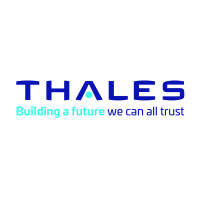You’ve seen it before, that enquiring, slightly perturbed eye that greets the gentleman who wanders effortlessly onto the train and takes a priority seat, or the lady that drives into a disabled bay, only to depart the vehicle seamlessly and into the supermarket without breaking stride. That all too familiar look of indignation on the many faces that derive that the person they are observing is not quite what, or who, their actions say they are. Sadly, our prejudices and our brains need to assimilate information quickly can severely misinform our opinions about who or what is a disability.
Did you know that a whopping 1 in 5 people in the UK have a disability? Some conditions are more visible and some are not so obvious – the gentleman on the train might be plagued by arthritis. The lady in the disabled bay ravaged by Endometriosis – but they are plentiful, in everyday life and increasingly so in the professional, working world.
Working in Talent Acquisition, I am passionate about creating an environment that is inclusive to all; not only is it my job to make hiring accessible and inclusive, I am one of the protagonists in the story. One of those 1 in 5 people who go through life suffering with the effects and impacts of a hidden disability.
I understand first-hand how difficult it can be to navigate a successful career, whilst balancing the limitations my condition can place on me, but over-time I have been lucky enough to experience the sharing of others personal experiences that has helped humanise work, remove biases and challenge the stereotypes. Only by talking and sharing can we make the step-change needed to tackle some of our deep societal issues.
That’s why I want to tell you my story, share my experiences, and give you and others the confidence to believe that anything is possible.
Looking at me, you’d be surprised to know that I had a disability, which is commonly the case for many people. Mine is a chronic medical condition that is called Hormonal Migraine. Research tells me that a vast number of people suffer with migraines in the UK and it is an extremely debilitating condition. Chronic migraine is defined as having headache on at least 10 -15 days per month, with eight of these having migraine symptoms, for at least three months.
I get migraines twice a month on average, ranging from anything from 2-5 days. The severity and length of attacks can vary and currently I have been unable to find a successful treatment (and I have tried a lot over the past 10 years). What this means in practice, is that depending on the severity of the attack, I will experience a number of days a month where I am unable to work or feel very unwell. I can sometimes continue to work through the migraine attacks, but often will have to retreat to complete bed rest if the episode is particularly bad.
This condition over the years has caused me personal anguish due to infertility issues and poor health. It has caused past issues in relationships with friends due to me having to cancel last minute arrangements and with past employers who have not always provided a supportive environment. I was not always confident in being open about my disability; I thought others would see me as weak and vulnerable or unreliable. Perhaps if I had been more open and honest at the time, things would have been easier, but the trust, my cynicism, the need to protect myself and deflect from something I believed to be career-limiting prevented this open dialogue. What I thought would be career limiting, however, has actually been quite the reverse.
Working at Thales has been a different experience and one that I am passionate about replicating within my own team. Honesty, empathy, and trust are the key to creating an inclusive culture and one as leaders we must advocate and replicate in order to make the change. The environment needs to be flexible enough to allow people to perform at their best. Success, achievement and contribution can be measured in lots of different ways. At a time when skills and talent are a high commodity, never has it been so important to look after what you have!
I know I am incredibly lucky to manage an amazing team, have the unfaltering support and understanding of my manager and work for a company whose processes, policies, and culture, help me perform at my best and manage my condition as well as I can. Sure, the pandemic has provided a more flexible approach to managing the condition and ability to stay home if required, but even before the pandemic, my worth was not placed on the hours worked or presentism. I am trusted to deliver and I always do.
If you’re looking for support Thales have – Mental Health First Aiders, EAP, Wellbeing team. HR.
Special thanks to my Manager @lindsey Beer, The TA Team and Thales for allowing me to be me!
